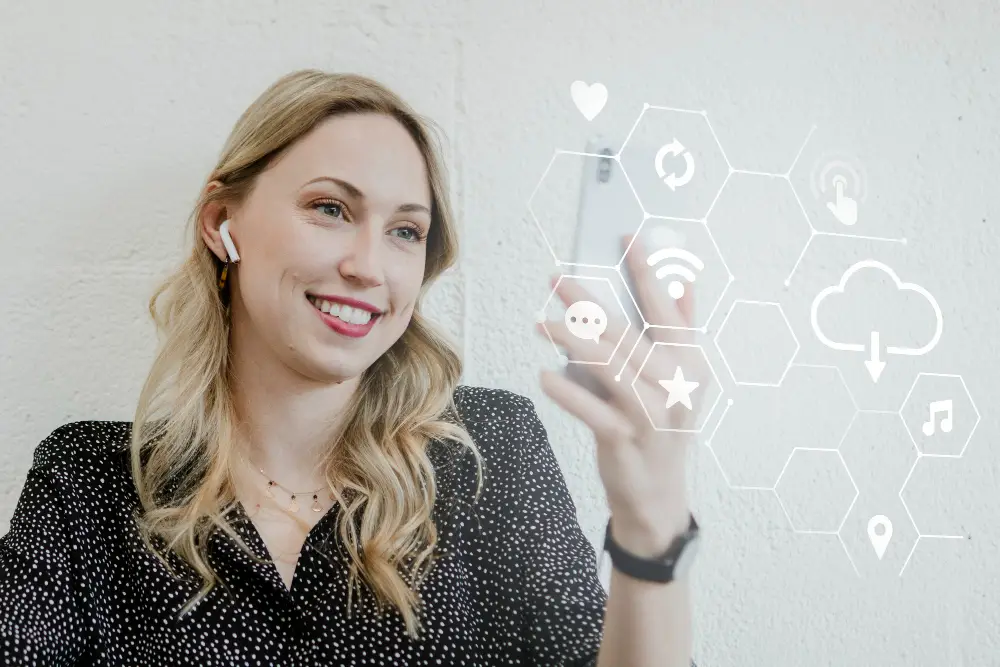In a world where consumers are bombarded with information, businesses face a unique challenge: standing out. Personalization is no longer just a trend—it’s a necessity. Companies that tailor their offerings, communication, and services to individual needs gain a significant edge. But why is personalization so crucial in today’s dynamic environment? The answer lies in its power to foster connections, build trust, and ultimately drive success. Let’s explore how personalization can transform the way companies operate.
Why Personalization is the New Norm
Today’s customers expect tailored experiences that resonate with their specific preferences. According to a McKinsey report, 71% of consumers expect companies to deliver personalized interactions, and 76% feel frustrated when this doesn’t happen.
In contrast to traditional one-size-fits-all approaches, personalization leverages data-driven insights to craft meaningful experiences. Companies like Netflix maintain 230 million global subscribers thanks to sophisticated algorithms that recommend content based on individual viewing habits. This capability keeps its audience engaged and loyal, showcasing how customization fuels retention.
Even small businesses have access to affordable tools like HubSpot or Zoho CRM to deliver customized experiences. For example, a local bakery can use customer data to send birthday offers or highlight seasonal items customers are likely to enjoy. This small but meaningful personalization keeps customers returning, illustrating that personalization doesn’t require a massive budget to succeed.

The Psychological Impact of Personalization
Personalization taps into a basic human need: feeling valued. A Harvard Business Review study highlighted that personalized messages increase customer engagement by up to 20%, making individuals feel appreciated and understood.
Amazon thrives by recommending products based on browsing and purchase history. This strategy generates 35% of its revenue, demonstrating how tailored recommendations directly impact purchasing behavior. Such an approach not only drives immediate sales but also builds long-term customer loyalty by making individuals feel recognized.
For smaller retailers, personalization is equally impactful. A boutique clothing store, for instance, could leverage purchase histories to send tailored emails with style suggestions or notify customers when their favorite brands are back in stock. These thoughtful touches help establish a deeper connection between businesses and their customers.
Personalization Across Channels
Today’s businesses must personalize experiences across multiple touchpoints. Emails with personalized subject lines have a 26% higher open rate, while websites featuring dynamic content tailored to user preferences can boost conversion rates by 20% or more.
Coca-Cola’s “Share a Coke” campaign demonstrates how simple personalization can spark a global phenomenon. By replacing its logo with individual names, Coca-Cola created a unique emotional connection with customers, leading to a 7% sales increase in the U.S. and 2% globally.
Retailers like Sephora integrate personalization across their online and offline platforms. Their loyalty program, which customizes rewards and product recommendations, has been a driving force behind their annual revenue growth of over 10%. This consistent focus on personalization ensures customers feel valued no matter how they interact with the brand.
On social media, targeted ads based on behavior, demographics, and location have transformed how companies reach their audiences. Platforms like Instagram and Facebook enable businesses to deliver messages that feel both timely and relevant, enhancing engagement.
The ROI of Personalization
Investing in personalization yields measurable results. According to Accenture, businesses that excel in personalization can increase revenue by up to 15% while reducing acquisition costs by as much as 50%.
Consider Stitch Fix, a company that combines AI algorithms with human stylists to curate fashion boxes tailored to individual clients. This personalized approach has earned the company 4.2 million active users and over $2 billion in annual revenue.
In the financial industry, banks like Chase use data-driven insights to offer tailored credit card recommendations or financial planning advice, increasing both customer satisfaction and retention. By addressing unique needs, businesses can foster long-term relationships while achieving higher customer lifetime value.

Challenges and How to Overcome Them
While personalization offers immense potential, it comes with challenges. Data privacy is a growing concern, as consumers want transparency about how their information is used. Businesses must prioritize ethical practices and communicate openly to maintain trust.
Scalability is another hurdle. Personalizing experiences for a large customer base requires robust systems. AI-powered tools like Salesforce or Marketo enable companies to handle these demands efficiently while adhering to privacy regulations like GDPR.
For smaller businesses, integrating personalization tools into existing workflows can seem daunting. However, platforms like Mailchimp and ActiveCampaign simplify the process, enabling even modest teams to deliver targeted campaigns and improve customer engagement.
Actionable Steps for Businesses
Implementing effective personalization strategies requires a thoughtful approach. Start by leveraging customer data to understand preferences and behaviors. This can be achieved through tools like Google Analytics or HubSpot, which provide actionable insights into your audience.
Segmentation is another key step. By dividing customers into specific groups, companies can deliver tailored content and offers that resonate. For example, Spotify’s Discover Weekly playlist curates music recommendations using machine learning, resulting in 80% of new user engagement being driven by this feature.
Automation further enhances efficiency. Email campaigns can be automated to deliver personalized messages at the right time, increasing conversion rates.
Collecting customer feedback is equally crucial. Many brands, like Nordstrom, use post-purchase surveys to refine their personalization efforts. These insights not only improve offerings but also make customers feel heard, further strengthening loyalty.
The Future of Personalization
As technology evolves, personalization will become even more sophisticated. AI and predictive analytics will allow businesses to anticipate customer needs before they arise, creating seamless experiences.
Deloitte predicts that by 2030, personalization will drive most consumer decision-making processes. Companies that fail to adapt risk falling behind. Real-world examples, like Spotify or Netflix, highlight how early adoption of these technologies pays dividends in customer satisfaction and loyalty.
Beyond AI, hyper-personalization is emerging as the next frontier. Businesses will leverage biometrics, location-based services, and augmented reality (AR) to deliver deeply personalized experiences. For example, AR apps in the retail sector can now suggest products based on a customer’s home environment or physical dimensions, creating a level of customization previously unimaginable.

Conclusion
In today’s competitive market, personalization is more than just a buzzword—it’s a business imperative. By leveraging data-driven insights, adopting advanced tools, and keeping customer preferences at the forefront, companies can create meaningful connections that drive loyalty and success.
Businesses must embrace this shift now, as personalization is not only the present but the future of customer engagement.
You may also be interested – Agile: Transforming Modern Businesses
Bibliography
- Deloitte Insights. (2020). “The Future of Personalization.”
- McKinsey & Company. (2021). “Personalization at Scale.”
- Harvard Business Review. (2019). “The Value of Personalization.”
- Accenture. (2022). “Personalization: Driving Customer Loyalty and Growth.”
- Campaign Monitor. (2021). “Email Marketing Statistics.”
- HubSpot. (2023). “Personalization Tools for Small Businesses.”
- Harvard Business School. (2022). “Customer Loyalty in the Digital Age.”






